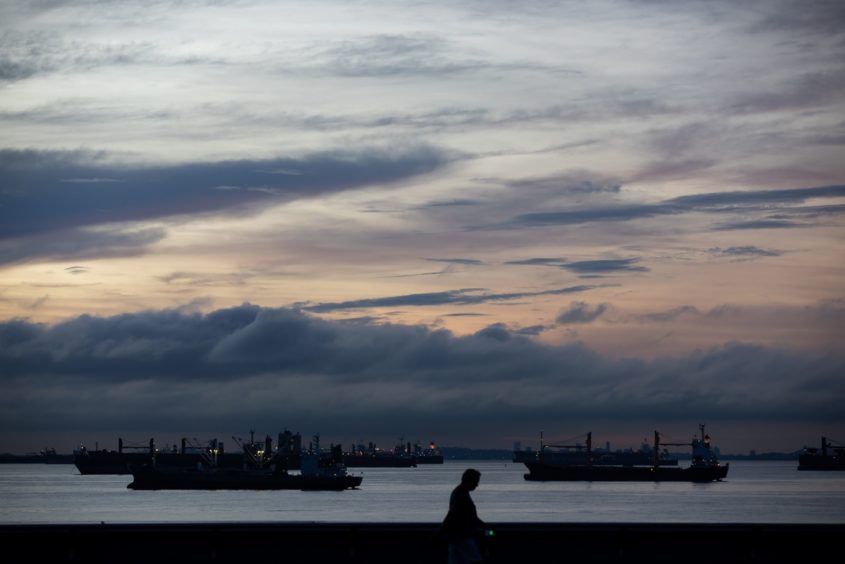
With increased maritime activity and the globalisation of demand, through ever-shorter supply chains focused on the Asian hub, there is a heightened potential for incidents at sea. This increase in shipping activity highlights a pressing need to improve safety and efficiency onboard ships through a focus on non‐technical skills. Our rationale is to optimise Human Factors training to prevent the next costly incident and help save lives.
Mandatory human element training has been recognised by governing bodies to be central to improving safety and performance, by bringing maritime safety onto a par with other sectors. Embedding this training for officers of watch onboard ships is generating greater levels of attention, primarily as a result of an increased profile and promotion by many statutory organisations in the UK and beyond, such as the Maritime and Coastguard Agency (MCA); the Health and Safety Executive (HSE); the Maritime Contractors Association; and, the International Maritime Organisation (IMO).
Primarily, the maritime sector has lagged behind others, typically aviation, nuclear and railways, where human factors training has been mandatory for all employees/crews for a number of years. The industry has realised the importance of clearly defined training programmes, such as Human Element Leadership Management (HELM) or Bridge Resource Management (BRM), in the quest to reduce accidents and incidents.
Using our cross-sector expertise and specialist knowledge, MAREX has identified several gaps between the existing level of training and the real human factors issues that need to be addressed onboard ships.
With the demand for ever shorter supply chains and increased tonnage, high performance multi-cultural crews are being utilised, which introduces additional human element risks. Companies and marine organisations need to be encouraged to recognise inherent dangers in ignoring the prime importance of delivering focused training, or the situation could get worse,” comments specialist, Tim Southam, long-standing MAREX associate and a recognised authority in the field of human factors engineering (HFE).
“Ship collision is still the most common type of maritime accident. With the increasing adoption of sophisticated marine technology, there is pressure on operators to adopt new technologies before fully understanding their complexities and requirements for safe integration on the navigation bridge. Ignoring the dangers arising from these aspects and their impacts on performance, can lead to misunderstandings, mistakes and unnecessary accidents. So, as well as enhanced human element training, HFE assessment on the bridge has also become highly critical,” he continues.
With multinational crews manning ships effective communication is paramount, particularly where decisions need to be translated into performance across the varying crew skill-levels, operating procedures and safety management. Ergonomics (the study of people in their working environments) has been recognised to be central to improving safety, efficiency and performance, by complementing existing practices with integrated, specially-focused training.
“In the Offshore Industry Leaders Webinar on 24th June 2020 a “call for action” was raised. Whilst industry leaders highlighted the challenges facing mariners and asked for support for our seafaring ‘Heroes of the Covid-19 pandemic’, we also heard these leaders suggest ship owners should consider restructuring their operational expenditure. The human element is a significant factor in both causing and preventing incidents. There are many examples of disasters where poor human performance played a central part. Human failure is a key contributor to many accidents, but what current training programmes do not take into account is that nearly three-quarters of those accidents have their origins within the organisational culture traceable back to the company management rather than crew on board” explains MAREX’s Managing Director, Karen McDougall.
“With an ever-increasing number of vessels with greater numbers of crew drawn from a variety of cultures and accidents continuing to happen, enhanced human element training and HFE assessments are a readily justifiable expense. Involving the entire crew in the process, rather than just the officers as currently, would markedly improve safety and performance. This will increase demand on training establishments, the majority of which do not have the required expertise. At MAREX, we can provide resourcing along with the practical marine experience.”
Caring for the health and wellbeing of our seafarers has never been more critical: Surely industry leaders owe this to our seafaring heroes?
Recommended for you
